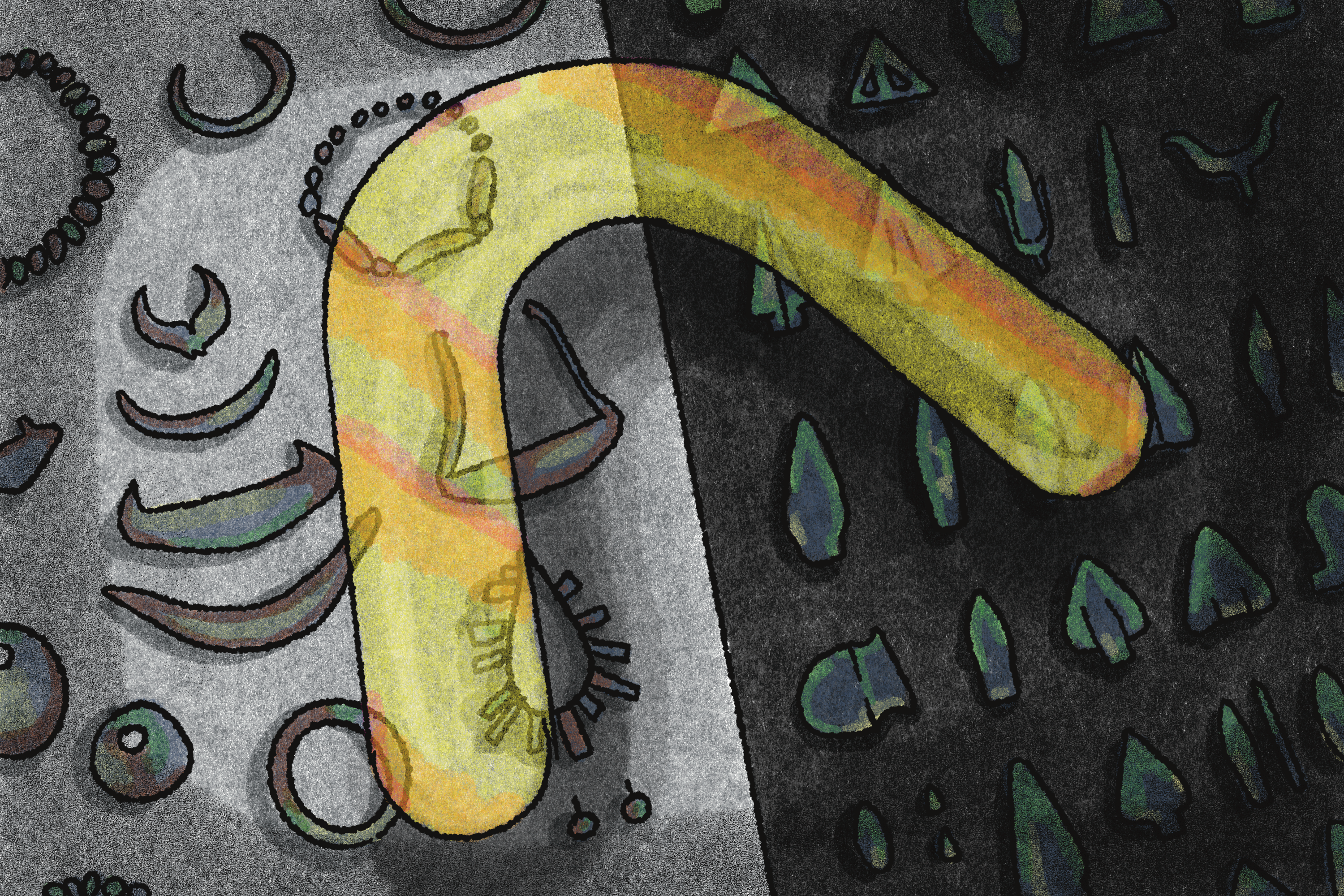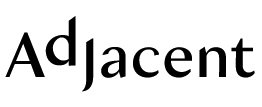Issue 12: Becoming
Undoing Time

Time was once described by Arthur Eddington as an “arrow” flying from past to present: morning to night, young to old, less to more. Eddington’s metaphor suggests that time is a movement forwards and things subject to it undergo a sort of temporal transmutation. This is second nature to us: we not only think of time “passing”, we also think of things-in-time as “becoming”. By becoming, things progress, grow, and actualize some latent potential or destiny. This is the good state – a movement upwards, an emergence, a coalescence of disparate energy. Becoming dictates the proper course of the world, both tangible and abstract: work is made, a company grows, a country becomes an empire. This view of the world is so intrinsic to us that it never really bears questioning. A temporo-positivist narrative is what makes us feel somewhat O.K. with the fact that everything must become. Like moths to a flame, we hold fast to this narrative at all costs while around us a strange and dissonant world unfolds outside of our control. As we “become”, we gleefully careen into the future atop this unwavering arrow, like Major Kong riding the bomb. If, instead, we chose to take a careful look at the base of our monuments, built or imagined, we would see the fine striations of wear and decay wrought by wind, sand, and human hands. We would realize that no matter how grand our attempt at crafting order in the world, the universe is already hard at work dismantling it.
Our civilization is first and foremost a civilization of means.
— Jacques Ellul, The Technological Society.
The same Arthur Eddington that gifted us the metaphor of the arrow was also quite candid about the fact that it actually moves the other way: “[pointing] from order to [maximum] disorder”. Eddington was describing the phenomenon of entropy. The second law of thermodynamics dictates that the energy in a system will flow in such a way that, over time, it becomes evenly distributed. In doing so, it also moves from a more organized and concentrated state towards an increasingly dissipated and more disorganized state. Eddington adds: “From a state of low entropy the universe moves to a state of high entropy, leading to what is known as the ‘heat death’ where everything is at the same temperature.” We go from order to disorder in part because it takes more energy to maintain order and in doing so, as Yeats put it, “things fall apart”.
This thermodynamic reality is not only an abstract, cosmic observation – it is also the bedrock of every scientific account of life and how it operates. Jeremy England, a contemporary physicist, goes so far as to suggest that the aim of all life is to aid entropy: if we think of life as a “dissipative machine” that breaks down other complex energy forms, then life is nothing more than an aid to the eventual dissolution of matter into heat, and “the eventual collapse and destruction of the universe… at the distant end of time in which no matter or mechanical motion will exist.” It turns out that instead of “becoming”, we’re constantly in a process of steady and unavoidable “unbecoming”.
Looking at the world through this entropic lens does some interesting things, the first of which is to make us re-evaluate how we think of progress. According to the entropic perspective, traditional narratives of progress and growth also have to contend with decay and dispersal. What we see as the creation of new things is, in reality, the restructuring and fragmentation of some older thing. An oil deposit somehow turns into a million 3D prints. Or a literal mountain of copper in Chile is converted into microns-wide conductors in billions of devices around the world. The dissipation of energy entails this breaking apart of things. What we call refinement is really an acceleration towards that distant state of heat-death. While useful to us in our temporal frame, technological progress also serves to solidify our nature as entropic agents, evolved to egg-on the process of total dissolution as quickly and efficiently as possible.
Is newness, in this sense, a sort of death drive? Are leaps forward only categorized this way when they entail a new way to reapportion some monolith (big or small) that’s gone unnoticed until now? Timothy Dalton points out that to understand the universe, we have to contend with the fact that none of the things we’ve been talking about have a saving grace – indeed, in this way, our universe is irredeemable: “if any moral value can be speculatively extracted and rationally deduced from this account of [entropy], then it is this: that existence is evil. This is, of course, precisely what Schopenhauer himself concluded…” And while it would be easy to leave it at fatalism, Dalton gives us a silver lining: “if it is demonstratively evil to be, then goodness might be defined as that which actively kicks against the nature and structure of reality, however futilely. So it is that we might follow Schopenhauer in defining goodness as that which endeavours to bend the entropic thrust of existence back upon itself in such a way that it is momentarily neutralized; for example, in acts of compassion or ascetic renunciation… To aspire to do good within such a metaphysical system would mean fighting to dismantle, resist, and rearrange every structure which exists within us, as well as the sociopolitical order of our day, that is complicit in the dissipative, destructive, and violent will of nature.”
one day
the neon
will burn out
and then what
— Ariel Francisco, Insomniami.
About 3000 years ago something strange happened around the Great Lakes. Communities that had been using copper tools for centuries seemed to suddenly give it up. Copper use, for the most part, stopped. At most its use was relegated to the making of small adornments but the arrowheads, axes, and tools that littered older archeological sites had vanished. These luddite communities came to be known as the Old Copper Complex, the study of which became an incredibly contentious topic amongst archeologists for a large part of the 20th century. What could possibly make people give up the benefits of advanced metallurgy? The obvious explanation is that the copper deposits dried up – and yet studies showed that the resource was still plentiful and readily available. Perhaps the metal was abandoned in favor of more advanced technology – and yet no evidence of this transition taking place was found. How does one explain the prehistoric equivalent of our entire society abandoning the use of stainless steel, or plastic for that matter?
Two archeologists, Susan Martin and Martin Wobst, both arrived at similar conclusions: the abandonment of copper tools was a conscious decision. More specifically the rejection of copper was likely due to its furthering of power imbalances, or because it was no longer deemed an acceptable technology in the communal context. In choosing to abandon this technology, Martin and Wobst proposed, they prioritized the integrity of their social fabric over the allure of technological progress. This decision reflects a nuanced understanding of the complex interplay between material culture and societal structures. As stunning as these perspectives might be, they’re not unprecedented. 400 years ago, the Tikopians in Polynesia consciously rejected pig husbandry, recognizing its dangerous pull on limited island resources. In the Torres Strait Islands, communities abandoned the bow-and-arrow in order to limit the lethality of inter-island conflicts. Stories of technological abandonment are not unheard of. Often they occur in small communities where resources are limited, or where a deep understanding of contextual realities necessitates a different approach to technological progress.
These events seem strange to us because they entail the rejection of something that is akin to a universal truth: that progress is linear, and that technological progress is somehow unavoidable once it has kicked into gear. At the root of this is a belief that growth, expansion, and power are the ultimate aims of the human collective. The Old Copper Complex works against our understanding of the inherent process of “becoming”. In stark contrast to the model of progress we’ve internalized since the Industrial Revolution, the Old Copper Complex reveals that our understanding of the arrow of time is fundamentally warped: true, sustainable progress is sometimes about reversals, reconsiderations, and “unbecoming”. The metrics by which we measure progress often look good and sensible because we take them in isolation: GDP doesn’t factor in carbon emissions, and global trade indices don’t track oil spills or microplastic waste. The lesson of the Old Copper Complex is largely one of systems-thinking, and the importance of reasoning at scales that are much larger than the individual or the immediate community. There is also much to learn about how these communities conceptualized the self and its relation to the world around it. Of course, replicating this sort of heroic social reconsideration is beyond any possibility today. That doesn’t mean, however, that the same principles can’t be applied at smaller communal, and personal levels.
Let us then consider the Old Copper Complex and their renunciation of copper technology through an entropic lens. Framed in this way – as a momentary neutralization of entropy through compassion or ascetic renunciation – their monumental choice makes sense. It represents a radical act of agency in the face of seemingly inexorable forces. And it also proves to us that, contrary to all human instinct, it is a possible and viable choice. In the face of tectonic social and technological shifts, thinking about production and progress through the lens of entropy maximization or minimization gives us a concrete philosophical compass through which to look at the world and our own work. It is an approach that demands an empathic outlook into the world, as well as one that prioritizes sustainability above all other factors. A narrative of “becoming” situates us in far too narrow of a timeframe, and insists on the idea that expansion, growth, and upwards linear change are inevitably good. In reality, we – and everything around us – are in the process of “unbecoming”. And the best we can attempt to do in the face of this slow falling apart is to strengthen the bonds and connections that already exist, while giving careful consideration to what we consume and create, in order that it all might take just a bit longer to unfold.
